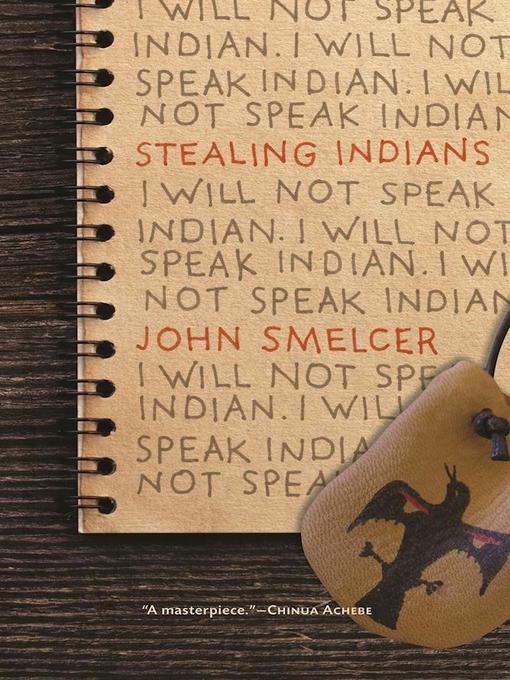
Stealing Indians
کتاب های مرتبط
- اطلاعات
- نقد و بررسی
- دیدگاه کاربران
نقد و بررسی

June 15, 2016
Smelcer's (Indian Giver, 2016, etc.) new novel focuses on the residential Indian boarding schools, where, according to the headmaster of the infamous Carlisle Indian School, the main purpose was to "kill the Indian to save the man."The novel shares the experiences of four Native American children stolen from their families and then taken to Wellington, a fictional residential school referred to by its students as "Wekonvertum,"--that is, we-convert-them to the mainstream culture. The four protagonists, Simon, Noah, Elijah, and Lucy, live in traditional Native homes in different geographic regions of the country. When government men arrive with legal documents, the families are forced to send them to Wellington. There, the children bond quickly and help one another survive inadequate food and clothing, cruel punishments, and the "English Only" signs. Unfortunately, readers are given only occasional, glancing hints to the 1950s time setting beyond the general absence of references to modern technology and communications. Without firm context, references to King Kong may well have teen readers mistakenly imagining the 2005 version. Furthermore, the protagonists' tribal affiliations are not explicitly provided, beyond one boy's punishment for speaking Navajo; Smelcer mostly uses the term "Indian." Though the book attempts to decry this blight on our history, without sufficient context and specifics, it may inadvertently encourage Native American stereotypes, particularly with teen readers. (discussion questions) (Historical fiction. 13-17)
COPYRIGHT(2016) Kirkus Reviews, ALL RIGHTS RESERVED.

August 1, 2016
Gr 6-10-Smelcer gives voice to four teens, Lucy, Noah, Simon, and Elijah, who are taken from their families and forced into Indian residential boarding schools in the mid-1950s. Thrown together by chance on their way to Wellington, a fictional institution likely based on the infamous Carlisle School, friendships are forged that later become lifesaving. The boarding school functions under the unfortunately real-life motto repeated at the time, "Kill the Indian To Save the Man." Educators severely punish the kids who speak their Native languages, have darker skin, or defy mainstream teaching. The cemetery in the yard serves as a reminder that failure to submit could cost them their lives. The cost of surviving, and thereby losing their Native identity, changes all four students permanently and continues to affect current generations today. Smelcer tackles the reality of boarding school abuse and treatment, without graphic details of horrific happenings. There are also questions for discussion at the end. Unfortunately, the author fails to depict any tribal specificity, relying heavily on the generic term Indian instead. The flattening of Native identity in the narrative is especially troublesome given the lasting effects of real schools like Carlisle and the lack of knowledge about Native nations among the majority of American readers. VERDICT Libraries looking for YA literature about the realities and effects of Indian residential schools may want to seek out My Name Is Not Easy by Debby Dahl Edwardson or Fatty Legs by Christy Jordan-Fenton and Margaret Pokiak-Fenton.-Amy Zembroski, Indian Community School, Franklin, WI
Copyright 2016 School Library Journal, LLC Used with permission.

July 1, 2016
Grades 5-8 The school's formal name is Wellington. To the Indian children who have, against their will, been sent there by the government, however, it's Wekonvertum, for the school's purpose is to convert from red to white, from citizens of home to citizens of a larger, more powerful culture. Reinforcing this is a sign the young people see when they arrive every day at school: English Only. Of the many students involved, Smelcer focuses on four: Lucy Secondchief; Simon Lone Fight; Noah Boyscout (the only half Indian among them); and Elijah High Horse, a shaman manque who can see ghosts. This episodic novel, set in the mid-1940s, follows their fortunes through a school year that is filled with bigotry, discrimination, cruel punishment, and more, all designed to rob the young people of their heritage and cultural identity. It's a depressing but emotionally powerful story, one that is rooted in real history, as such schools existed for nearly a century, with their chilling philosophy rooted in the slogan Kill the Indian to Save the Man. (Reprinted with permission of Booklist, copyright 2016, American Library Association.)

























دیدگاه کاربران